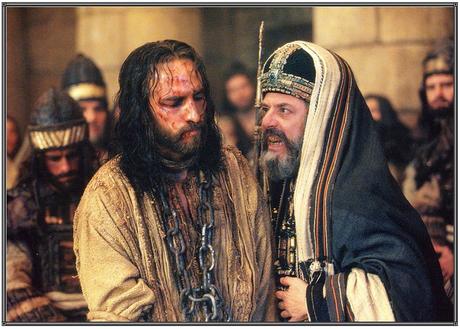 |
Sarah Supplies Abraham Hagar by Adriaen van der Werff |
In
today's 1st reading, we hear of the account of Abram, Sarai, and Hagar (Genesis 16). I have often seen people misinterpret this chapter or use it to prove what it speaks against. It has to be understood in the proper context. To get a bit of that, let's look at
yesterday's reading (Genesis 15:1-18).
In Genesis 15, God tells Abram (who is at this point childless) that he will have a son. In fact, He tells Abram that his descendants will be as numerous as the stars. At this time, Abram and Sarai are quite old--beyond child-bearing years--but Abram trusts God anyway, and God "credited it to him as an act of righteousness"(Gen 15:6). That was good; Abram trusted what God said. Unfortunately, He didn't trust God enough to make it happen. After not conceiving for a while, Sarai thinks:
maybe this son isn't supposed to come through me, so (instead of turning to God for help) she devises a plan to ensure that her husband has the promised heir. She offers her maid, Hagar, to her husband as a concubine. Though this may have been a custom for some people at the time, this was not what God wanted.
God created man and woman to enter into a marriage and remain in that marriage "until death do they part," and the only way God wants man and woman to commit the marital act is
within a marriage. God created the first covenant with Adam, the husband of a marriage. Here, Abram broke his marriage covenant by sleeping with a woman who was not his wife--both an offense against his wife (even though it was her idea) and an offense against God's first covenant with man. As always, when a seed is planted by a bad act, bad fruits come.
Abram is generally looked at as a great man, and that he was, but he was not perfect. Here (and in other places) he chose poorly. Although he was trying to do what he thought God might possibly want, he forsook his conscience in order to accomplish the task. He chose to get an heir "his way." To be sure, Sarai and Hagar were complicit in the act, so they were
all accountable--they chose to get an heir "their way." They all broke the marriage covenant, and there were consequences. Too often, I have heard people try to use this account as an argument
against the Judeo-Christian view of marriage. They just don't get it. Not every story in the Bible shows how to do things rightly--often it shows how
not to do things, and this is one of them.
Lesson of the day: don't commit the marital act with someone who is not your spouse (also, there are right ways and wrong ways to bring a child into this world: don't try to have a baby in a way that God does not want).
As we continue to read, we will see that the son of this union (Ishmael) is not the heir that God promised; Isaac is that man. As God's messenger predicted (verse 12), much strife between Hagar/Ishmael and Abra(ha)m's true heir, Isaac will come. This will lead to great contention and battles down through the years. The Muslims claim their lineage through Ishmael. The Christians & Jews claim their lineage through Isaac. Thus, we see in the many wars between Muslims and Christians/Jews that Ishmael and Isaac have been fighting down through the centuries, and it all started with a sin against the covenant of marriage. Obviously this story is one of what
not to do.



